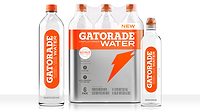Channel Strategies
On-premise sees continued growth
Inflations concerns impact on-premise

Cited in various publications since at least the 1890s, the phrase “Champagne tastes on a beer budget” refers to Champagne as a luxury drink, while beer represents a common, more-affordable drink. Today, as the phrase still means luxury on limited wealth, it seems to mirror the on-premise channel experience, as more consumers seek out “treat” experiences, despite having limited spending power.
“On-premise has normalized from pandemic lows then bounced back post re-opening,” says Scott Scanlon, executive vice president of BevAl at Chicago-based Circana, formerly IRI and The NPD Group.
According to March insights from CGA powered by NielsenIQ’s “US On Premise Impact Report,” 69% of consumers “have been out to eat at bars/restaurants in the past two weeks,” while 41% had been out to drink in bars/restaurants (up two percentage points versus February).
Further, 31% of consumers planned to travel during this year’s spring break period, with 88% of those intending to visit the on-premise during these trips, the report states.
In the CGA powered by NielsenIQ “State of play in the US On Premise” insights report, the market research firm highlighted top takeaways that were presented by Matthew Crompton, CGA regional director of North America, and Andrew Hummel, client solutions director for North America at CGA, during the 2023 VIBE Conference, which took place in February in San Diego. The report notes that after months of disruption from the pandemic, consumers have largely returned to their usual on-premise behaviors — despite being impacted by the rising cost of living.
“CGA’s REACH survey shows more than half (55%) of those surveyed in key global markets are now going out to eat weekly — just two percentage points behind pre-COVID-19 levels,” it states. “Nearly as many consumers (51%) say they drink out at least once a week — up by 12 percentage points. Velocity of sales in the U.S. has been consistently ahead year-on-year as well.”
Circana reported in March that of the $2.9 trillion in consumer retail spending Circana tracks, food and food service spending represents the largest share, nearly $1.5 trillion.
Meanwhile, at- and away-from-home food and beverage sales grew 8% in 2022, exceeding historical norms, according to Circana.
At Circana’s Growth Summit, which took place March 20-22 in Las Vegas, David Portalatin, Circana food and food service industry adviser, noted that although higher food costs have had an impact on discretionary spending, consumers are likely to get “frugal fatigue” and start to acclimate to the current pricing situation.

Image courtesy of Campari
“While 2022 was about value pricing to manage budgets, 2023 will be about the other attributes that play into value. Price will always be important, but consumers define value differently,” Portalatin stated. “For example, consumers who visit a restaurant aren’t necessarily looking for the cheapest meal. They’re looking for the menu items they crave or food service outlets that offer quality and variety and enable them to treat themselves.”
Beverage, consumer trends impacting on-premise
With consumer behaviors shifting as a result of higher food and beverage costs, experts highlight some trends impacting the on-premise channel.
Circana’s Scanlon notes that although on-premise inflation is lower than off-premise, today’s consumers still are mindful of discretionary spending.
“Consumers increasingly are cautious of macroeconomic concerns and look to refrain from non-core expenses,” he says. “Today, more than previous, consumers are aware of the economic advantages of consuming BevAl at home, and can afford a premium product to consume at home at a much lower cost.”
In the CGA powered by NielsenIQ “State of play in the US On Premise” insights report, the market research firm highlighted top takeaways that suppliers and operators should consider.
Top takeaways from the insights report are as follows:
- Bars and restaurants influence off-premise choice: CGA’s On Premise Impact Consumer Research emphasized the power of bars and restaurants to influence people’s trial and loyalty. More than half (54%) stated they purchased brands in stores that they first tried on-premise.
- Imported beers up, hard seltzers down: Segment analysis highlighted key trends in the beer segment. For instance, imports recorded share growth (0.9 percentage points) over the past 12 months but dropped for hard seltzers (down 0.2 percentage points) and craft (0.7 percentage points).
- Tequila and red lead growth in spirits and wine: In the spirits category, whiskey and tequila increased their share by 0.2 and 1.0 percentage points, respectively — partly at the expense of vodka, which dropped 0.7 percentage points, it reports. Tequila increased its share of the cocktail base market too. The wine market also exhibited some notable trends — including growth in share for red varietals like Cabernet Sauvignon (up 1.5 percentage points) at the expense of white ones like Chardonnay (down 1.6 percentage points).
- Non-alcoholic segment set for growth: Growing interest in health since COVID-19 is driving some important changes in beverage choices. Nearly one in seven (14%) consumers purchased a non-alcohol beer, wine, spirit or cocktail at an on-premise location in the past three months.
As on-premise purveyors balance inflation concerns with consumer indulgence, the short-term future of this channel will be one to watch.
Looking for a reprint of this article?
From high-res PDFs to custom plaques, order your copy today!






